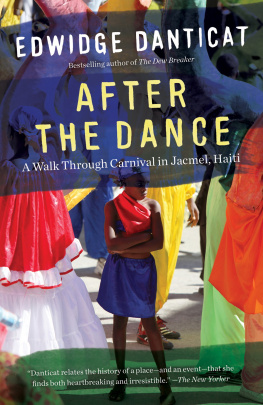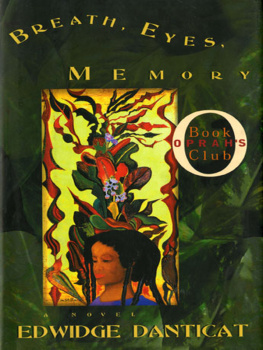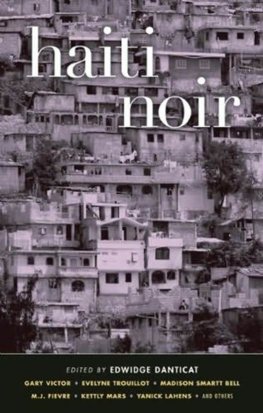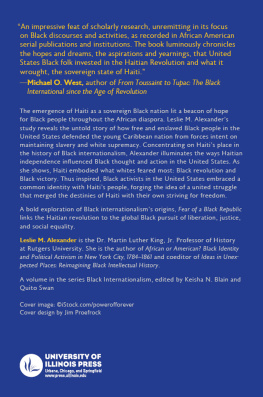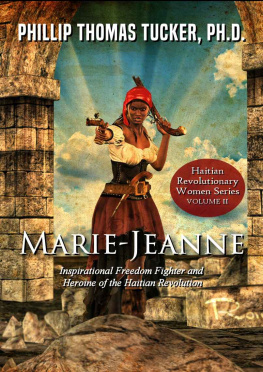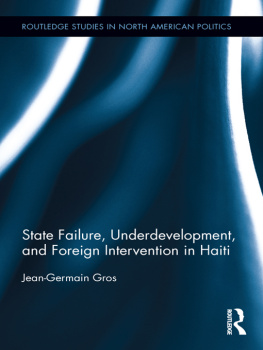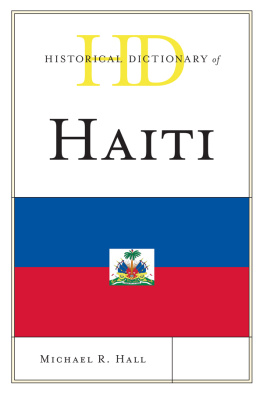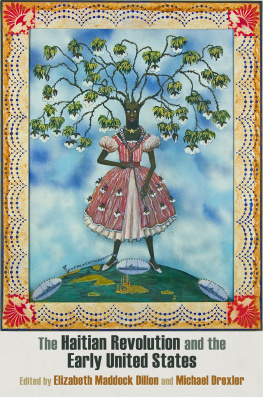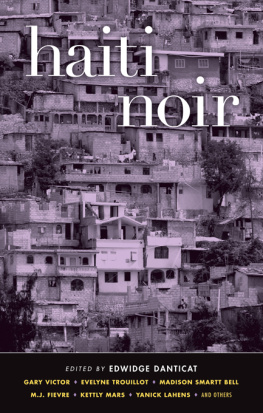
Edwidge Danticat, Marc Christophe, Joanne Hyppolite, Jean-Robert Cadet, Marie-Helene Laforest, Jean-Pierre Benoit, Assotto Saint, Barbara Sanon, Danielle Legros Georges, Dany Laferriere, Joel Dreyfuss, Patricia Benoit, Nikol Payen, Marie Ketsia, Theodore-Pharel, Maude Heurtelou, Garry Pierre-Pierre, Martine Bury, Katia Ulysse, Marilene Phipps, Phebus Etienne, Francie Latour, Anthony Calypso, Miriam Neptune, Leslie Casimir, Annie Gregoire, Sophia Cantave, Marie Nadine Pierre, Sandy Alexandre, Leslie Chassagne, Patrick Sylvain, Michel-Rolph Trouillot, Babette Wainwright, Gina Ulysse, Myriam J. A. Chancy, Patrick Sylvain
The Butterfly's Way: Voices from the Haitian Dyaspora in the United States
Copyright 2001 by Edwidge Danticat
"You and Me against the world," by Martine Bury, copyright 1999, is reprinted by permission of the author. "Restavek" is from Restavec: From Haitian Slave Child to Middle-Class American by Jean-Robert Cadet, copyright 1998, reprinted by permission of the University of Texas Press. "The Million Man March" by Anthony Calypso, copyright 1998, first appeared as "The Chicken Bone Express" under the pen name, Tbnven Bolewo, in Tea for One and appears here by permission of the author. "Present Past Future" by Marc Christophe is adapted from the poem "Present Passe Futur" which appeared in Le Pain De L'Exile, copyright 1988, and is reprinted by permission of the author. "A Cage of Words" by Joel Dreyfuss, copyright 1999, first appeared in The Haitian Times and is reprinted by permission of the author. "Another Ode to Salt" by Danielle Legros Georges first appeared in The Caribbean Writer, Volume 9, copyright 1995, and is reprinted by permission of the author. "America, We Are Here" by Dany Laferriere, copyright 1987, first appeared in his book Why Must a Black Writer Write About Sex? (David Homel translator, Coach House Press, Toronto) and appears here by permission of the author. "Homelands" by Marie-Helene Laforest first appeared in slightly different form in DiasporicEncounters (Liguori Editore, Naples, January 2000) and is reprinted by permission of the author. "Made Outside" by Francie Latour first appeared in a slightly different form in The Virginian-Pilot, copyright 1995, and is reprinted by permission of the author. "Something in the Water Reflections of a People's Journey" by Nikol Payen first appeared in The Crab Orchard Review, copyright 1997, and is reprinted by permission of the author. "The White Wife" by Gary Pierre-Pierre first appeared in Essence Magazine, copyright 1998, and is reprinted by permission of the author. "Haiti: A Memory Journey" by Assoto Saint is from Spells of a Voodoo Doll, copyright 1996, and appears by permission of Michele Karlsberg, Estate of Assoto Saint. "Looking for Columbus" is from Silencing the Past by Michel-Rolph Trouillot, copyright 1996 by Michel-Rolph Trouillot, reprinted by permission of Beacon Press, Boston. "Do Something for Your Soul, Go to Haiti," by Babette Wainwright, copyright 1999, first appeared in slightly different form as "Fencing in the People" in SheperdExpress, April 15, 1999 and is reprinted by permission of the author. All other contributions first appear here by permission of their respective authors, copyright 2001.
if you don't know the butterfly's way,
you will pass it by without noticing:
it's so well hidden in the grass.
"Ten O'clock Flower"
Jean-Claude Martineau
I have the extremely painful task of beginning this introduction on the same day that one of Haiti's most famous citizens, the radio journalist Jean Dominique, was assassinated. I woke up this morning to a series of increasingly alarming phone calls, the first simply mentioning a rumor that Jean might have been shot while arriving at his radio station, Radio Haiti Inter, at six thirty in the morning, for the daily news and editorial program that he co-anchored with his wife, Michele Montas. The next few calls declared for certain that Jean had been shot: seven bullets in the head, neck, and chest. The final morning calls confirmed my worst fears. Jean was dead.
The following hours would slip by in a haze as I went to teach my classes at the University of Miami. When I came back to my office that afternoon, there were still more phone calls and e-mails from relatives, friends, and acquaintances who could not believe what had happened. In those real and virtual conversations, the phrase that emerged most often was "Not Jean Do!" During the varying lengths of time that many of us had known Jean Dominique- either as a voice on Haitian radio or in person-we had all come to think of him as heroically invincible. He was someone who expressed his opinions freely, seemingly without fear, criticizing groups as well as individuals, organizations, and institutions who had proven themselves to be inhumane, unethical, or simply unjust. Of course, Jean's life was too multifaceted and complex to fully grasp and make sense of in these very early hours so soon after his death. All that seems undeniably compelling and memorable about him right now is his exceptional passion for Haiti and his profound, often expressed longing to see all Haitians realize the full potential for greatness that our forefathers and foremothers had displayed when they had battled their way out of slavery almost two hundred years ago, to create the first black republic in the Western Hemisphere.
I can't even sort out now, under this full assault of memories, the exact moment I met Jean Dominique. As a child in Haiti, I had heard his voice on the radio so many times, and as an adult in New York, had seen him at so many different Haiti-related gatherings that I can't even pinpoint our first meeting. However, I do remember the first time we had a lengthy conversation. It was at an art exhibit at Ramapo College in New Jersey in the early 1990s. Jean was in exile, yet again, after the Haitian military had deposed the democratically elected government and had raided his radio station.
That night, Jean and I talked at length about the paintings, which I remember much less vividly than the extreme nostalgia that they evoked in him, the hunger to return to his home and his radio station in Haiti as soon as he could.
A few weeks later, our mutual friend, the filmmaker Jonathan Demme, asked Jean and me to work with him on a project about the history of Haitian cinema. Every week, the three of us would meet on the Ramapo College campus to discuss Haitian cinema while some communications students watched and videotaped us. My job was to find prints of the films that we would discuss; Jean's was to help us all understand them by putting them in context as Jonathan questioned him about technique, style, and content.
The task of finding the films proved to be a herculean one. Many of the filmmakers themselves had lost track of their own prints during nomadic lives in exile under the Duvalier regime. However, in our videotaped sessions each time we would mention a film title to Jean he would proceed to describe at length not only the plot of the film, but details of the method of its distribution and the political framework surrounding it. The film Anita, for example, made by the talented Rassoul Labuchin, told the story of a servant girl whose experiences are much like those described here by Jean-Robert Cadet in "Restavtk." According to Jean, Labuchin had traveled with the film from province to province and had shown it to peasants in the Haitian countryside. Jean had done something similar himself when he had broadcast on Radio Haiti Inter the
Next page


